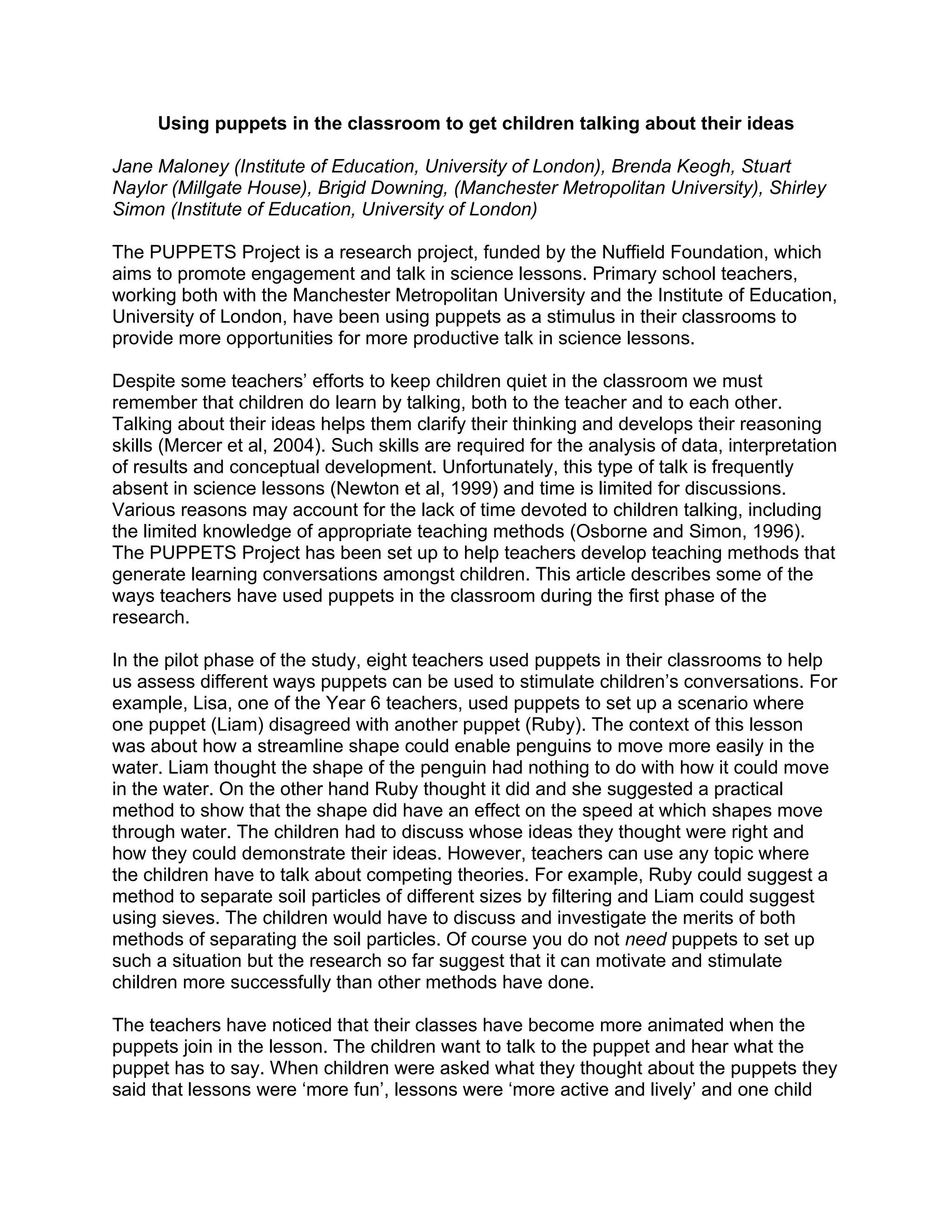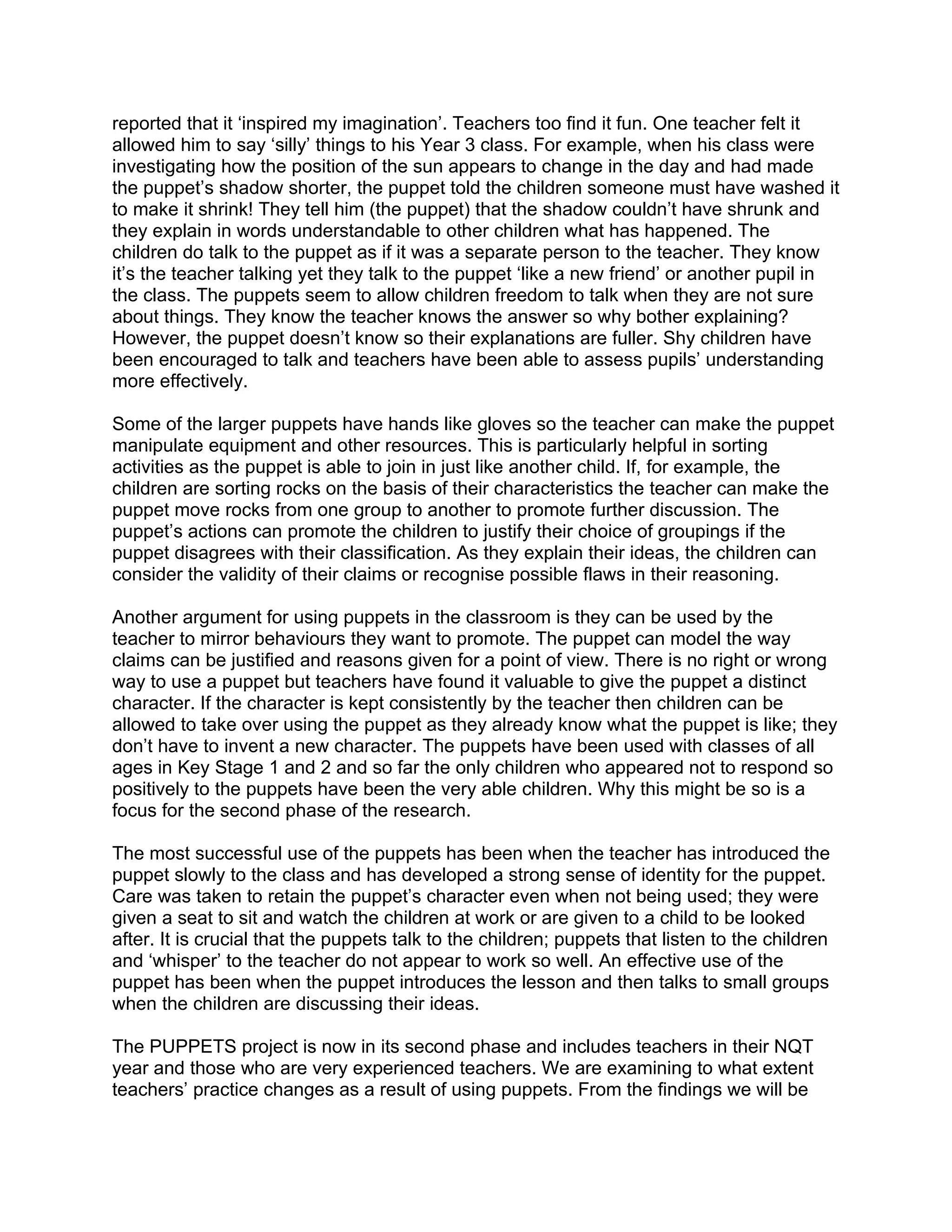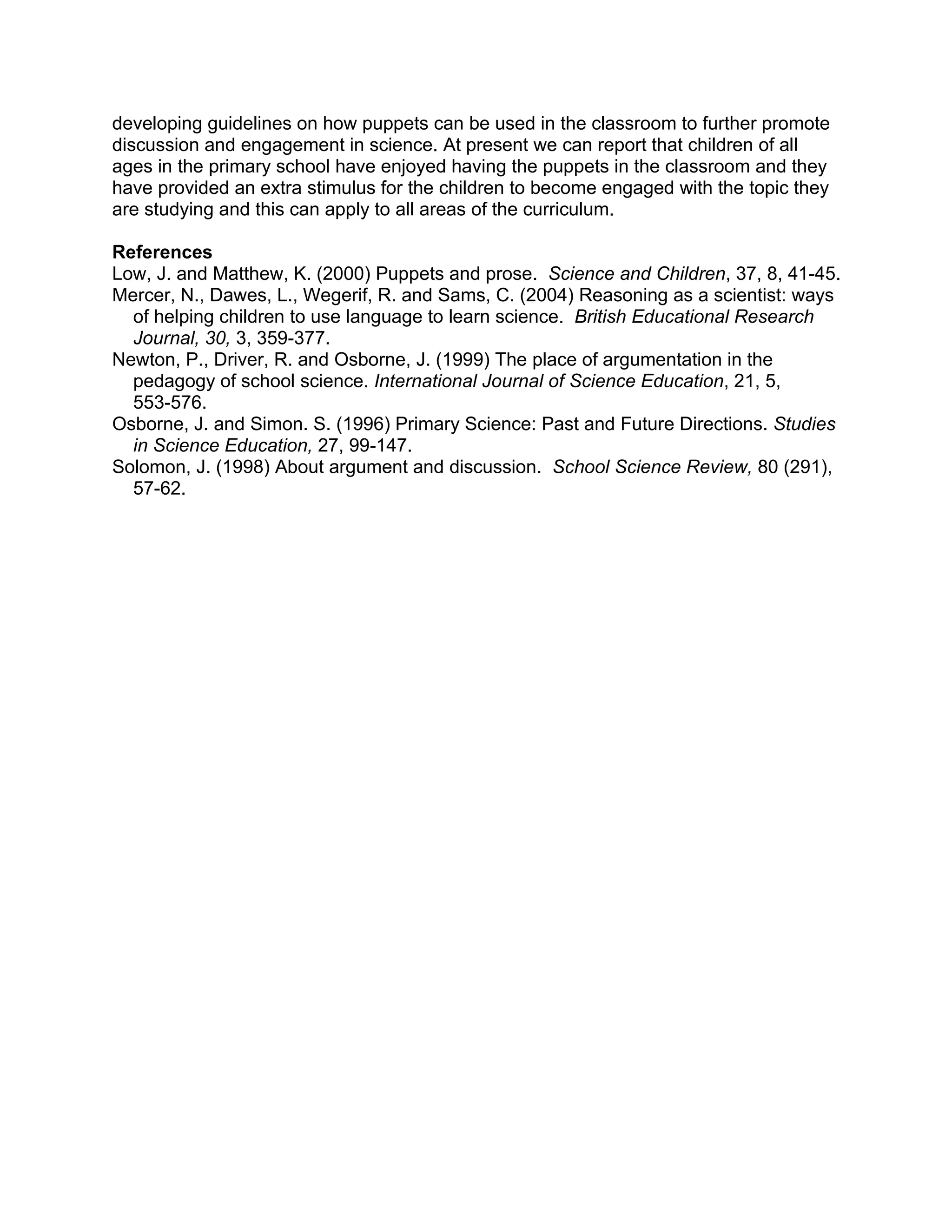Teachers have been using puppets in primary school science lessons to encourage more productive talking among students. Puppets stimulate discussion as students are motivated to explain their ideas to the puppets. In one lesson, puppets Liam and Ruby disagreed about how streamline shape affects a penguin's movement in water, prompting students to discuss which idea was right. Puppets have helped shy students talk more and given teachers more insight into students' understanding. The project found puppets most effective when teachers developed distinct puppet personalities and identities for students to engage with.


